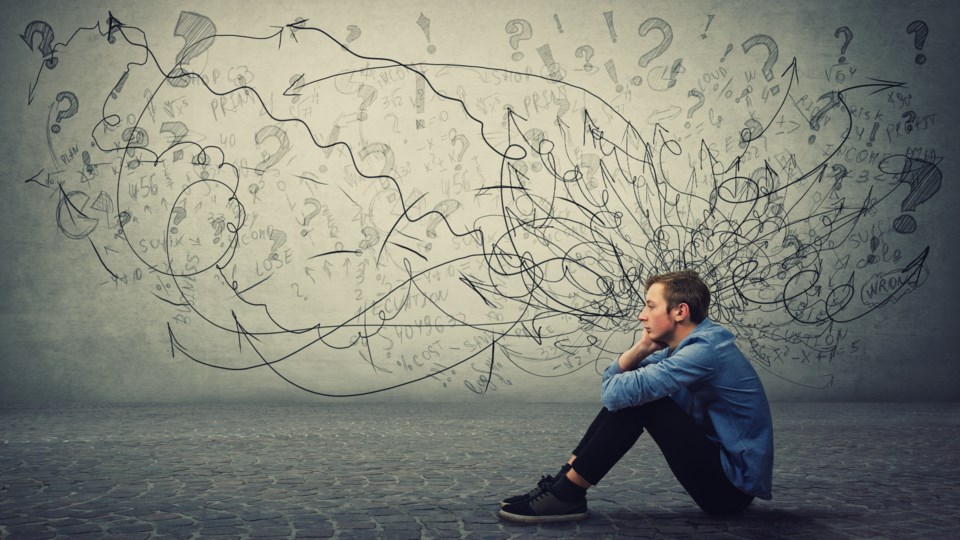There’s a certain truth that often gets mercifully concealed by the innocence of childhood. As kids, we inherently trust that adults, for the most part, are fully in control of all things at all times. That they essentially know what they’re doing; have all of the answers to all of life’s little frustrations.
Before you know it, you, yourself, are an adult. And just how the hell did that happen? You compare yourself at different points of your life to where your parents were, at the same age, and wonder if they lived with the same self-doubts, the same emotional highs and lows; learned the same hard truths.
It sure didn’t seem like it, but of course they did (or at least some of them). They’re only human, after all.
And there must be some revelatory moment for all of us, whether we realize it at the time or not, after which we shed the happy delusion for good.
Mine was becoming a news reporter, and spending hours every day talking to people from all walks of life. You start to appreciate the subtleties and similarities we all share, to some degree; the hopes, fears, and day-to-day challenges we don’t always show on our faces.
Sooner or later you come to terms with the knowledge that we’re all just imperfect humans doing our best. And we all have more in common than we may realize.
Even those who hold positions of power, or carry immense responsibility. Even those we look up to.
It goes back to the philosophical concept of sonder, and the reality that each and every one of us is fighting our own unglorified battles every single day. Many times in secret to all but those closest to us. Sometimes even to them.
Oct. 1 to 7 marks Mental Illness Awareness Week in Canada, and according to the Canadian Alliance on Mental Illness and Mental Health, about one in five Canadians experience mental illness each year—everything from depression and post-traumatic stress disorder to anxiety and schizophrenia. More than half of those struggling with mental illness are not getting the support they need, and untreated mental illness costs the Canadian economy about $50 billion every year.
According to Statistics Canada, about 4,500 people die by suicide every year—an average of about 12 per day. And for each of those, seven to 10 people are significantly affected by the loss.
Men and boys are at higher risk, as are survivors of suicide loss, and some First Nations communities, particularly among youth. Thoughts of suicide and suicide-related behaviours are also more frequent among LGBTQ youth in comparison to their non-LGBTQ peers.
Every day, 200 people in Canada attempt suicide, and instances of suicidal ideation in Canadian adults rose from 2.7 per cent in 2019 to 4.2 per cent in the spring of 2021, following the COVID-19 pandemic (though Statistics Canada says it will take time to understand the impact on the rate of deaths by suicide in Canada).
These are sobering, uncomfortable statistics. For all the increased discourse around mental health in recent years, suicide remains taboo—but we should not shy away from talking about it. Rather than bury the discussion in outdated shame, we should create more spaces for people—particularly men—to be open and vulnerable about the things they are struggling with day to day.
There’s a reason men and boys are at higher risk of suicide in Canada. The rules of masculinity dictate that we must suppress all emotion that might be seen as a weakness, beginning at a very young age. Male friend circles are not always receptive to frank and open discussions about mental health, and the best way to ruin a good hang sesh with the bros is to start crying (er, not that I’m speaking from experience or anything).
And ironically, tragically, like suicide itself, therapy is also considered taboo for many men.
But as Jackie Dickinson at the Whistler Community Services Society has told Pique on more than one occasion, it’s not a sign of weakness to ask for help—it’s a sign of strength.
And more people are reaching out to WCSS for help all the time: in 2022, a record 8,380 used the social service provider’s outreach services.
But that doesn’t mean it’s easy.
I recall a particularly rocky stretch in my early 20s, when I wanted desperately just to talk to someone—anyone—about all of the horrible anxieties building up inside of me, threatening to spill over at any minute. At no point did I consider confiding in even my closest friends.
In retrospect, what I was yearning for was a basic therapy session—but seeking professional help was a sign that something was very wrong.
Like so many other men, I was resistant to the very idea of therapy for many years. It was several months after my own personal dark night of the soul before I built up the nerve to book my first appointment. Going to that first session was one of the hardest things I’ve ever done.
Now I think everyone should go to therapy. And I wish I didn’t wait until my lowest point before I asked for help.
I don’t share these very personal anecdotes lightly, and quite the opposite. The simple act of typing them may cause me enough anxiety to fill my next therapy session.
But it’s time we worked harder to break the taboos around male mental health and suicide.
It’s time we do away with the notion that any of us have all the answers on our own.
At the end of the day, we’re all still just imperfect humans, doing our best. But there is strength in numbers, and in community—and help is available for those who need it.




